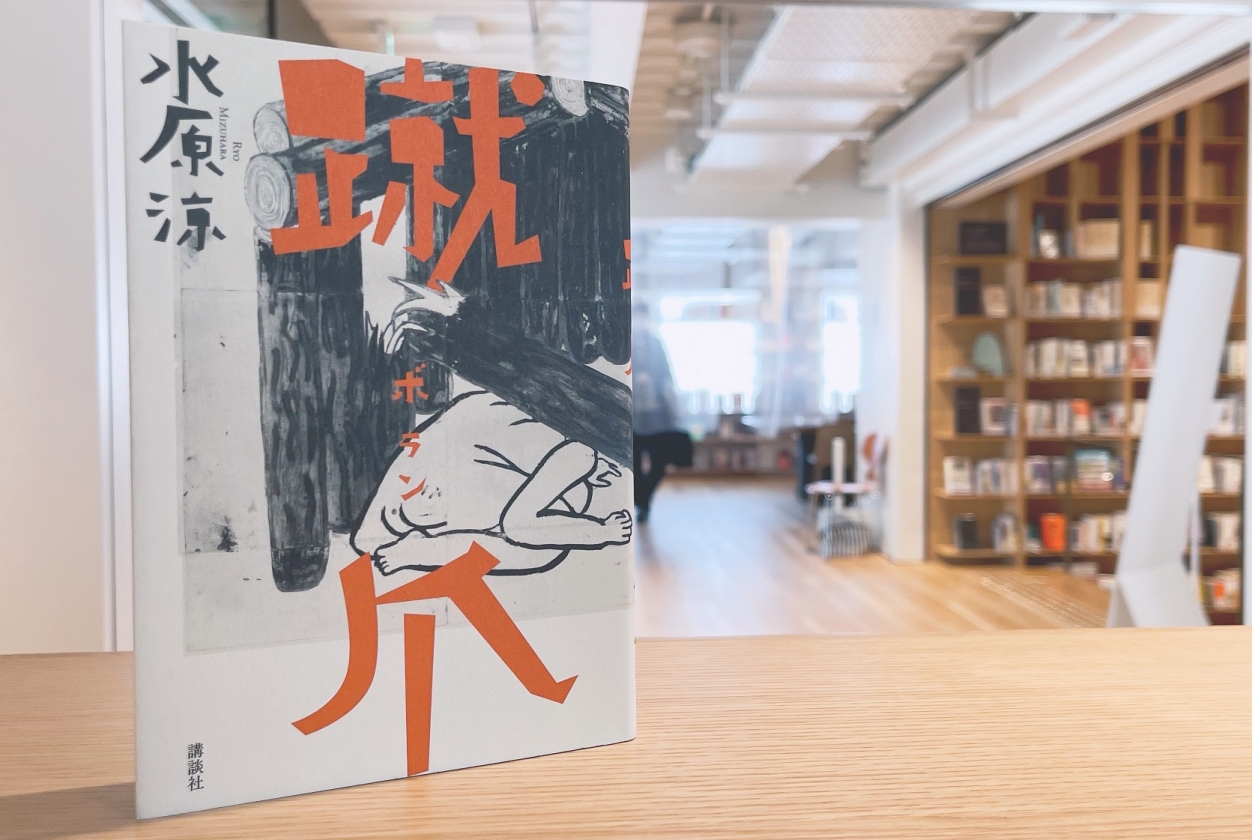

Useful Landscape
2022.03.28
- Ryō Mizuhara
Spring has come! We plan to continue bringing you more heart-and-soul-warming essays on the lasting impact of Murakami’s literature this year as well. Please join us on our journey!
Quan Hui (Editorial Director, Waseda International House of Literature)
Useful Landscape
Ryō Mizuhara
To read a novel is to embark on a tiny journey—which means that to write a novel is to create for someone a “destination.”
When going on a trip, people usually go to places where there are other people. Even if the purpose of the trip is to enjoy the beauty of nature, the places people go usually feature observation decks or camping sites or lines of buoys delineating the boundaries of swimming areas. They are designed landscapes. There are those who seek the deep woods that lie beyond human habitation, but these people are less on a journey than an adventure. There are layers of lives lived in each place to where people journey.
Each and every picturesque city street is filled with houses built so people could live their lives in them. From time to time people will build a new house with novel architecture, complete with interior décor that lends a different atmosphere to the place, and then invite guests in for coffee. In this way, houses are built one by one until, at some point, they form a city.
This is what it means to write a novel as well. First you decide to build a house. You mark out a piece of land, gather the materials needed for construction, and then assemble the parts one by one until you can fit them all together and have a house. If your only intention is to make an empty façade to view from the outside, you can leave it at that, but you cannot know how many electrical outlets there might be in it, how quiet or noisy it is at night, how the light changes as the seasons pass unless you live there. You must therefore decide to make a life there. You sleep there at night and wake up in the morning, you eat food you cooked or bought, you read books, you write. This is how the house known as a novel comes into being. Sometimes what you make isn’t a house at all—it’s a café or an electrical tower instead; sometimes you dig roads to connect to neighboring towns. Whatever the case, it is a place where travelers come and end up spending a bit of time.
The shapes of these buildings vary widely depending on who makes them. There are those who specialize in building castles and grand palaces. There are those who focus on meticulously constructing miniature dwellings one after the other. There may be those who point at a vacant lot and say that this is their construction. Readers will take to some homeowners and visit their houses again and again; they will dislike others and never return. Some, like restaurants that serve painfully spicy food or scream-inducing amusement park rides, provide frightening or uncomfortable sensations that guests will nonetheless return to experience again and again.
To build a house, to live there. To visit a house, to spend time there however one wishes. This is what it means to read a novel, and to write one. Haruki Murakami, in his book Useless Landscape, puts it this way:
Now that I think about it, though I’ve written seven novels, I’ve never written two in the same place. It’s as if every time I moved, I wrote a novel.
For this reason, each novel I’ve written carries with it its own sense of place, its own landscape.
The place known as “Haruki Murakami” is a destination loved by many. The readers who visit the houses he creates are able to glimpse a different landscape via each one. There may be places among them that no one ever remembers. Sometimes, the same place leaves a completely different impression on visitors due to their situation. And there are places bustling with activity that people visit again and again.
I was raised in a place called Tottori, a city located far from the capital, Tokyo. There were more shuttered shops than shoppers in the arcades and the number of movie theaters dwindled from two or three to only one during the more than ten years I lived there; only the huge shopping mall next to the bypass prospered. It was the kind of place where the main tourist attraction was a vast, damp sand dune, and the city name becomes your nickname when you go to a school outside the city. It was a place that seemed small and cramped to my expanding teenage consciousness, but I lacked the knowledge to think of anywhere else I might go and spent all my time reading instead.
I knew the name Haruki Murakami from relatively early on. Though not as a wonderful novelist. It was a time when message boards were beginning to flourish on the internet, and Murakami’s worldview and literary style were popular objects of parody. Bizarre metaphors would abound, narrators would suddenly have sex without preamble, after which they would bemusedly exclaim, “Good grief!”
Looking at his timeline, I see that Murakami has put out multiple books almost every year since his debut. But to the preteen I was at the time, never imagining I would grow up to be a novelist myself, this of course meant nothing to me. Using any free time I had to play soccer was much more important to me than getting my hands on books by Murakami. Even when, as a birthday present when I was in sixth grade, a family member I’d never actually met—I was told to call him “uncle,” but I don’t know even now what actual relation he was to me—sent me a copy of Murakami’s brand-new novel Kafka on the Shore, despite it being the only hardcover in my possession at the time, and a thick, two-volume one at that, I set it on my bookshelf and promptly forgot all about it.
The first novel of his I ended up actually reading was After Dark. I was in my second year in junior high. A bookworm friend of mine recommended it to me. He was the kind of guy who recommended nearly every book he read, so if I were to take his every suggestion there would be no end; I would usually just nod politely and write the title he recommended in the margin of my notebook and leave it at that. The reason why, out of all the books he recommended, I ended up reading After Dark was because instead of saying it was good or interesting, my friend said he wanted me to read it because he didn’t understand it at all. And as it turned out, I didn’t understand at all either. It’s not very long, so it only takes a day to read the whole thing. The day after he recommended it to me, the first thing I said when I saw him was, “Good grief, right?” “Good grief, indeed,” he answered. We weren’t quoting a line from the novel—it seemed to be the cleverest way to act after reading a complex work by Murakami. Perhaps we were readers less of After Dark than of the whole Murakami “thing.” And perhaps you could also say that Haruki Murakami was a big enough presence in the world by that point that even people who’d never read a word of his writing were aware of the Murakami “good grief!.”
Returning home, I saw that my father, who was the same age as Murakami, had several of his early works on his shelf. I selected one that was particularly slim, which was his debut novel, Hear the Wind Sing. The landscape depicted in it was like none I’d seen in any novel—any destination—I’d visited before. My reaction was less to like or dislike it than to be simply dumbfounded.
“Good grief!” is probably not what Haruki Murakami, as host, wished his guests to use as the point of entry into his world, and I, having used it anyway, did not experience an immediate attraction to it. I was a university student before I read another one of his novels. As soon as I entered university, in the short time before classes started in the spring, I borrowed two volumes that seemed thin enough to read right away: Pinball, 1973 and, once again, Hear the Wind Sing, at the university library. By that time, I had already decided I wanted to become a writer. The most common way to make your debut as a writer in Japan is to enter a literary contest for new writers run by a publishing house or a literary journal. These prizes are classified according to category—“pure literature,” “entertainment,” “light novels,” etc. Murakami made his debut with Hear the Wind Sing by winning a prize in a “pure literature” journal. I read this book thinking to myself that I could make my debut, too, if I could manage to write something as good as this little book—looking back on it now, a thoroughly shameful thought.
The first time I found a Murakami novel truly interesting was much later, during the spring of the third time I attempted to complete my fourth year in university. I had already made my debut by winning a new writer’s prize run by a different journal than the one Murakami had won. Like him, my debut work was also put up for the Akutagawa Prize, though unlike him, my piece was unceremoniously dismissed from consideration. But I’d made my debut nonetheless, and no matter how different our works might be in popularity or quality, I considered myself to be Murakami’s colleague. Though this might seem arrogant to admit, I see every novelist living in the same times as me as my rival, and one of the most successful among them is Haruki Murakami. All that being said, the book of his I read at that point was naturally another thin, easily readable-seeming volume, Useless Landscape. There were a couple “good grief!”s in there, too, if I remember correctly. Looking back, it seems I consistently gravitated toward his thinner books. Perhaps I sensed an ungraspable depth within Murakami’s works that I was afraid to delve into too deeply. At any rate, it was at this point that I finally began to read Murakami seriously.
Useless Landscape contains short essays in which Murakami, who has travelled the world writing his novels while “living here and there,” describes the vivid, unforgettable landscapes he has seen. He writes about real things he saw in places he really went. He writes about a cat as it decides to hunt a squirrel; he writes about a sailor messing around with his fellows who suddenly stops and stares into the sky with vacant eyes. Murakami asks himself why people travel at all, and then answers his own question:
Perhaps, as we travel, we seek a landscape meant just for us. That’s what I think, at least.
We seek a landscape that can be seen here and nowhere else.
A traveler relaxing at home, where everything is familiar, will think back upon the feelings he had when his body was in this place or that. The things I think of when I think about Murakami’s writing aren’t motifs like “wells” or “disappearances” or the things parodied on those message boards like his metaphors or his good griefs. Rather, I think of things like the height of the ceiling above the pool where his insomniac narrator is swimming as hard as he can, or the sandy texture of the twisted donuts that I could never have actually tasted. These are not necessarily things that are explicitly described in the text. Just as guests welcomed into a home will see things besides those the host intends them to see, readers of a novel will notice what is important for them to notice—a landscape just for them—before returning home.
Of course, I never actually saw any of these landscapes myself. But I was able to see them because they were described in the books. Books, too, contain landscapes that can be seen there and nowhere else. And it is to see these that I read Murakami’s—and anyone else’s—books.
There are so many novels in the world that a single reader could spend their whole life reading and never read them all. But no matter which novel’s world I visited, I was always left with the feeling that something about it didn’t quite fit. I’ve read many novels and visited various places by now, finding landscapes unique to each place. And then I return home, carrying with me my personal impressions of them. There are landscapes I’ve incorporated into descriptions in novels, while others remain raw, still just lying there in my consciousness. Landscapes that stick in my memory like this leave unresolved feelings behind. These are things unwritten in any novel I’ve ever read. The only way to resolve such feelings is to build a house of one’s own. This is why I started writing novels, and why I continue to do so. Perhaps someone will come and visit sometime. And perhaps they will leave with the memory of a landscape completely different from the one I see.
(Translated by One Transliteracy, LLC)
March 28, 2022
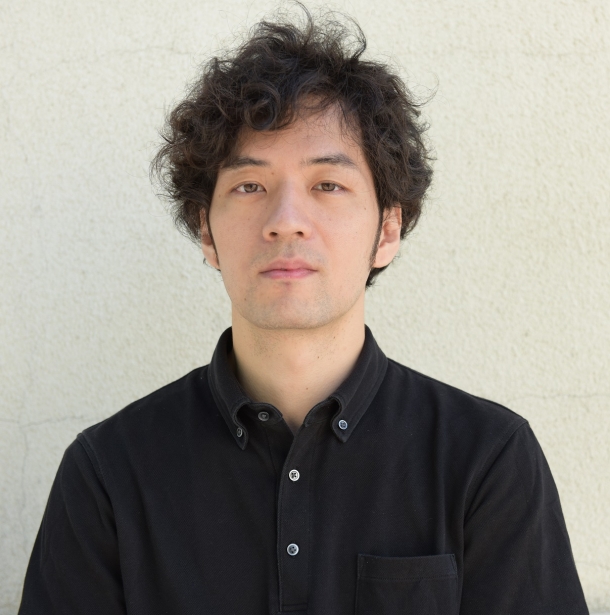
Profile
Ryō Mizuhara was born in Hyogo Prefecture in 1989 and grew up in Tottori Prefecture. He graduated from Hokkaido University’s Department of Literature. He holds an MA from Waseda University’s Graduate School of Letters, Arts and Sciences. His 2011 novel Nectar was awarded the Bungakukai Prize for New Writers and was a candidate for the Akutagawa Prize. He is also the author of Bulang (Kōdansha) and Trembling Iris (with photography by Kazuhiro Yasuda).
One TransLiteracy, LLC, is a boutique translation and cultural consultation agency founded by Miyabi “Abbie” Yamamoto, Ph.D. We are a team of highly educated native or native-level bilingual and bicultural experts who provide meticulous translations with linguistic acuity, hone texts for precision and elegance, and provide concise explanations of cross-cultural exchange. The founder, Abbie, grew up in Tsukuba, Japan and received her Ph.D. in Japanese and Korean literatures at the University of California, Berkeley. She is passionate about promoting cross-cultural exchange and everyday practices of intentional inclusion.
*This article was made possible through the support of the Waseda International House of Literature and Top Global University Project in collaboration with Waseda University’s Global Japanese Studies.
Related
-
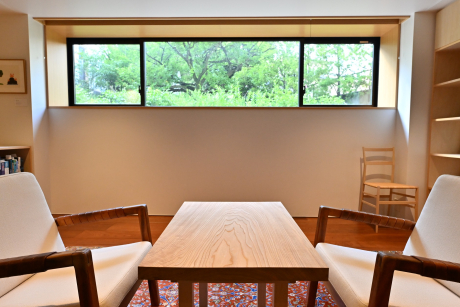
“Letters from the Haruki Murakami Library”― Rebecca Brown
2025.12.02
-

“Letters from the Haruki Murakami Library”― Camilla Grudova
2025.10.20
-
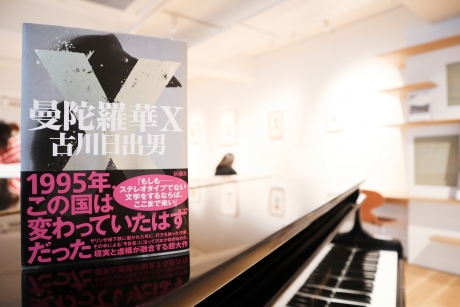
Memories of Things That Never Happened to You
2022.12.12
- Hideo Furukawa
-
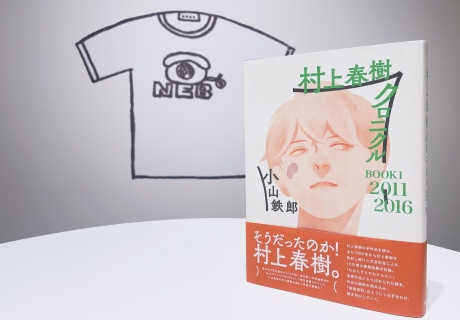
Historical Consciousness and “Boomerang” Thoughts in the Works of Haruki Murakami
2022.05.08
- Tetsurō Koyama
-
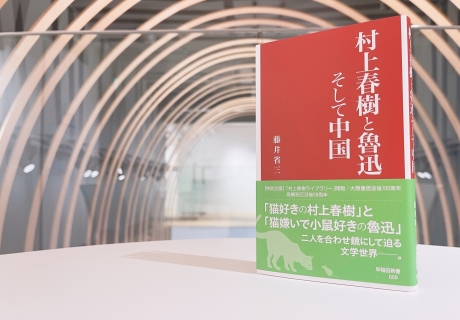
My Personal History with the Literature of Haruki Murakami
2022.02.25
- Shōzō Fujii
-

My Encounter with Haruki Murakami, and Taiwan’s
2022.01.27
- Lai Ming-chu
